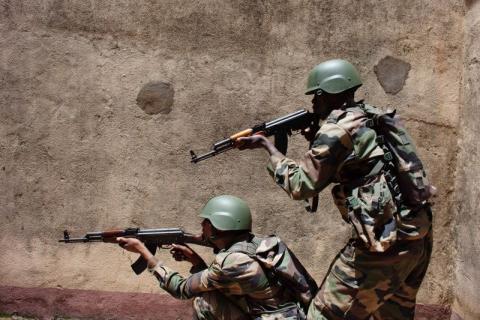Advertisement
Twenty soldiers killed in Mali attack, government says
BAMAKO (Reuters) - About 20 soldiers were killed in a pre-dawn attack on an army camp in central Mali on Sunday, the government said.
The identity of the attackers was not immediately clear. In a statement, the government said "terrorists" entered the camp near the village of Sokolo, killed the soldiers and caused "significant material damage".
"Reinforcements have been dispatched to the scene and an aerial reconnaissance is underway in the area to track down the attackers," it said.
Islamist groups with links to al Qaeda and Islamic State operate in arid central and northern Mali and have used the area as a base to attack soldiers and civilians in neighbouring Burkina Faso, Niger and beyond.
Former colonial power France intervened in 2013 to drive back militants who had seized northern Mali in 2012, and the U.N. Security Council deployed a peacekeeping mission, known as MINUSMA. The militants were pushed back initially but have since regrouped and strengthened. In a sign of their success, MINUSMA has become the U.N.'s deadliest mission.
Large areas of the Sahel, the band of scrubland south of the Sahara, are no longer controlled by soldiers and police, to the dismay of local governments and their international partners, including the United States, which have struggled to contain the spread of jihadist groups across West Africa.
Twenty-four Malian soldiers were killed and 29 wounded when militants attacked a patrol in northern Mali in November. Twenty people were wounded earlier this month in the north, including 18 U.N. peacekeepers from Chad, in a rocket attack on a military base used by U.N., French and Malian forces.
France’s armed forces minister Florence Parly will travel to Washington this week amid fears that U.S. forces could pull out of the region. France has 4,500 troops in Mali and the wider Sahel, but the United States provides much-needed intelligence, logistical and drone support.
(Reporting by Tiemoko Diallo; Additional reporting by Paul Lorgerie in Bamako; Writing by Edward McAllister; Editing by Timothy Heritage and Giles Elgood)



















Add new comment